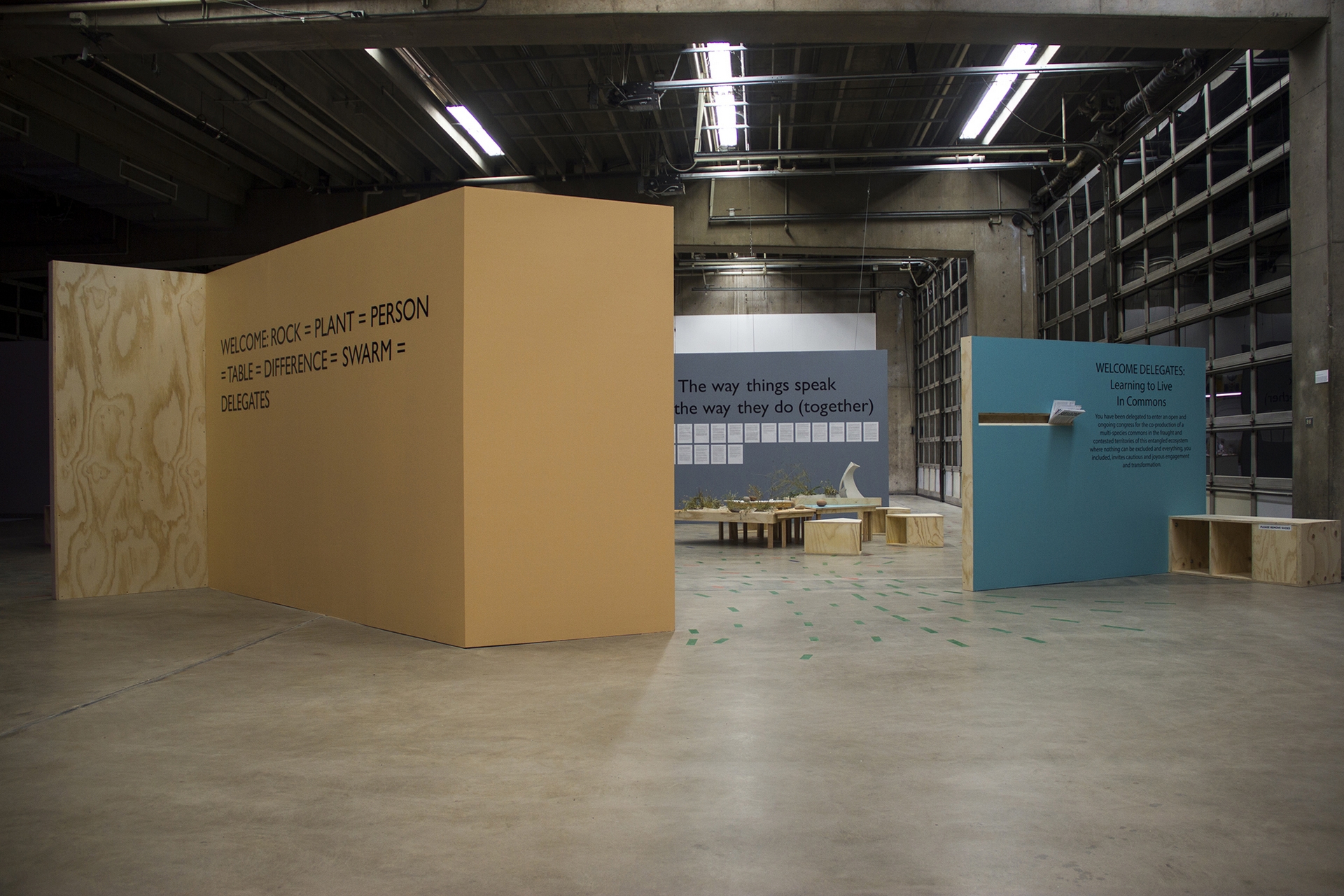
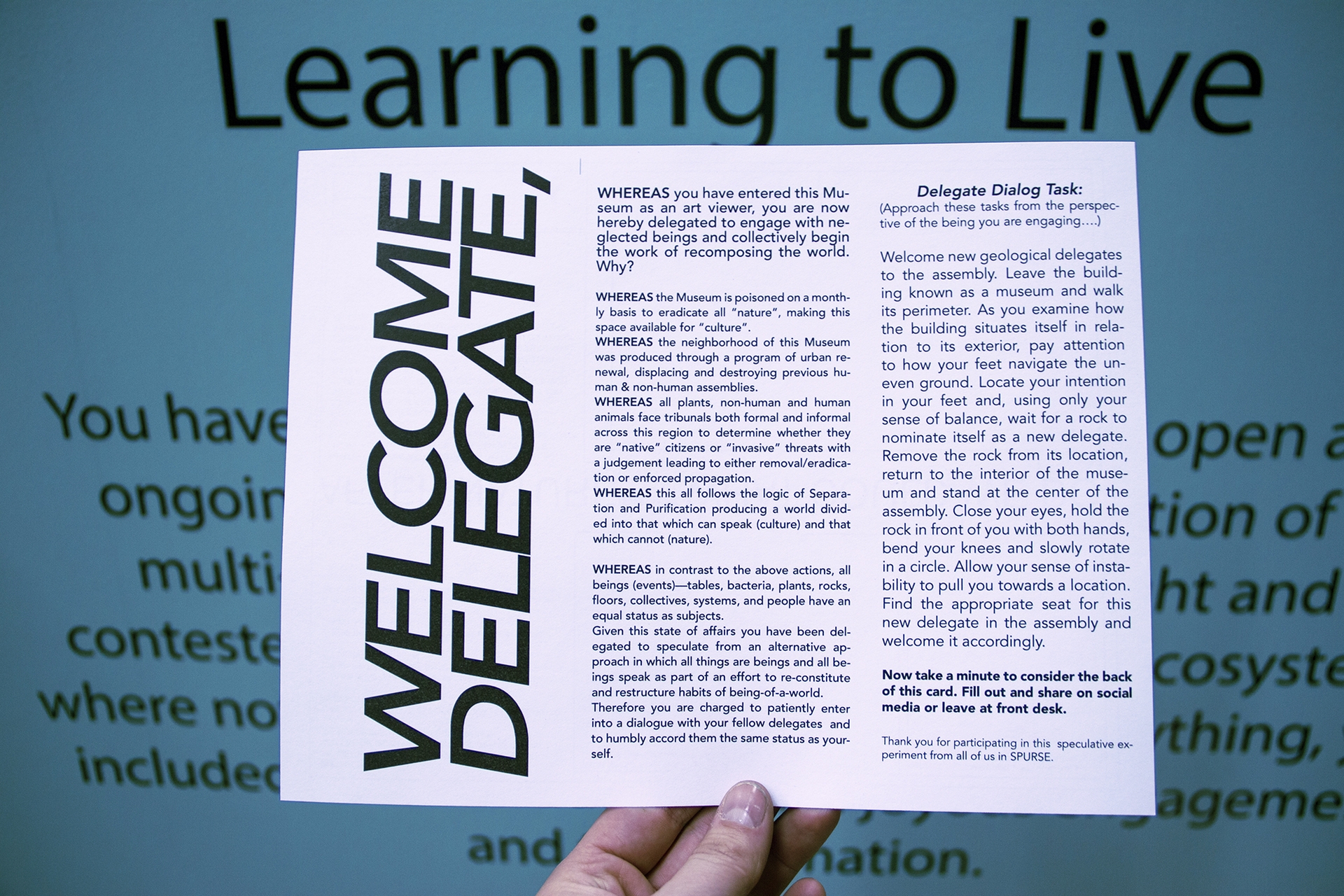
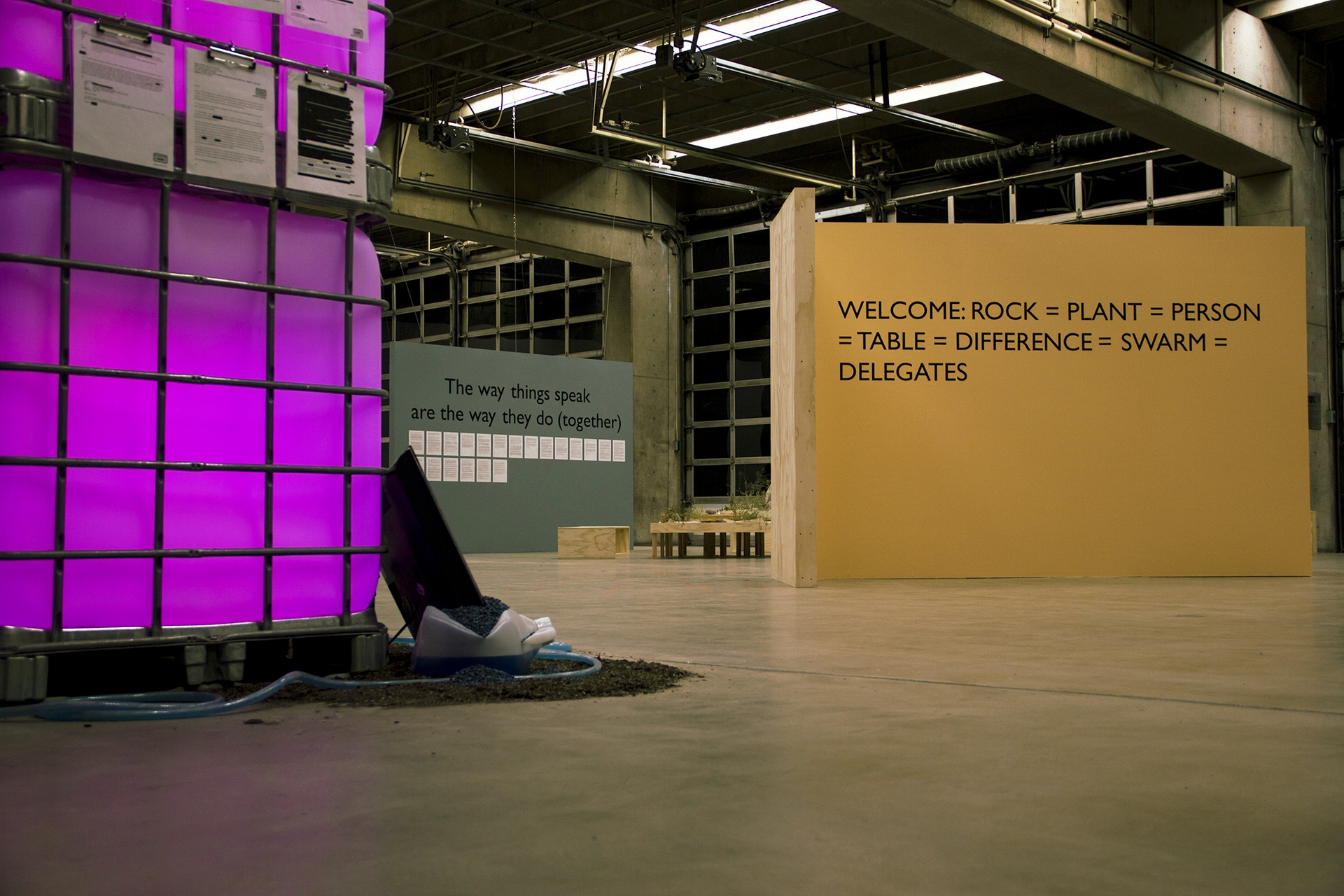
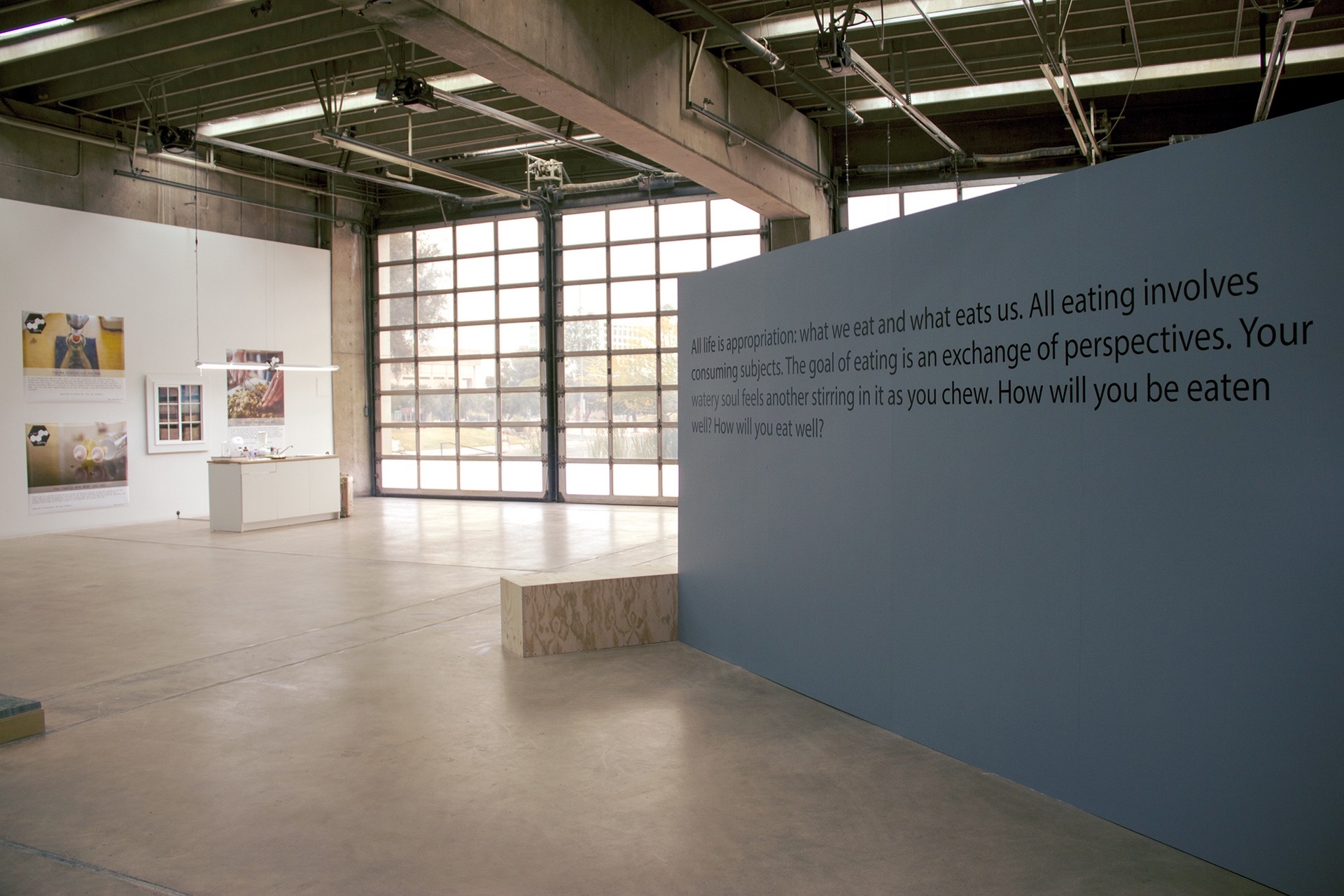
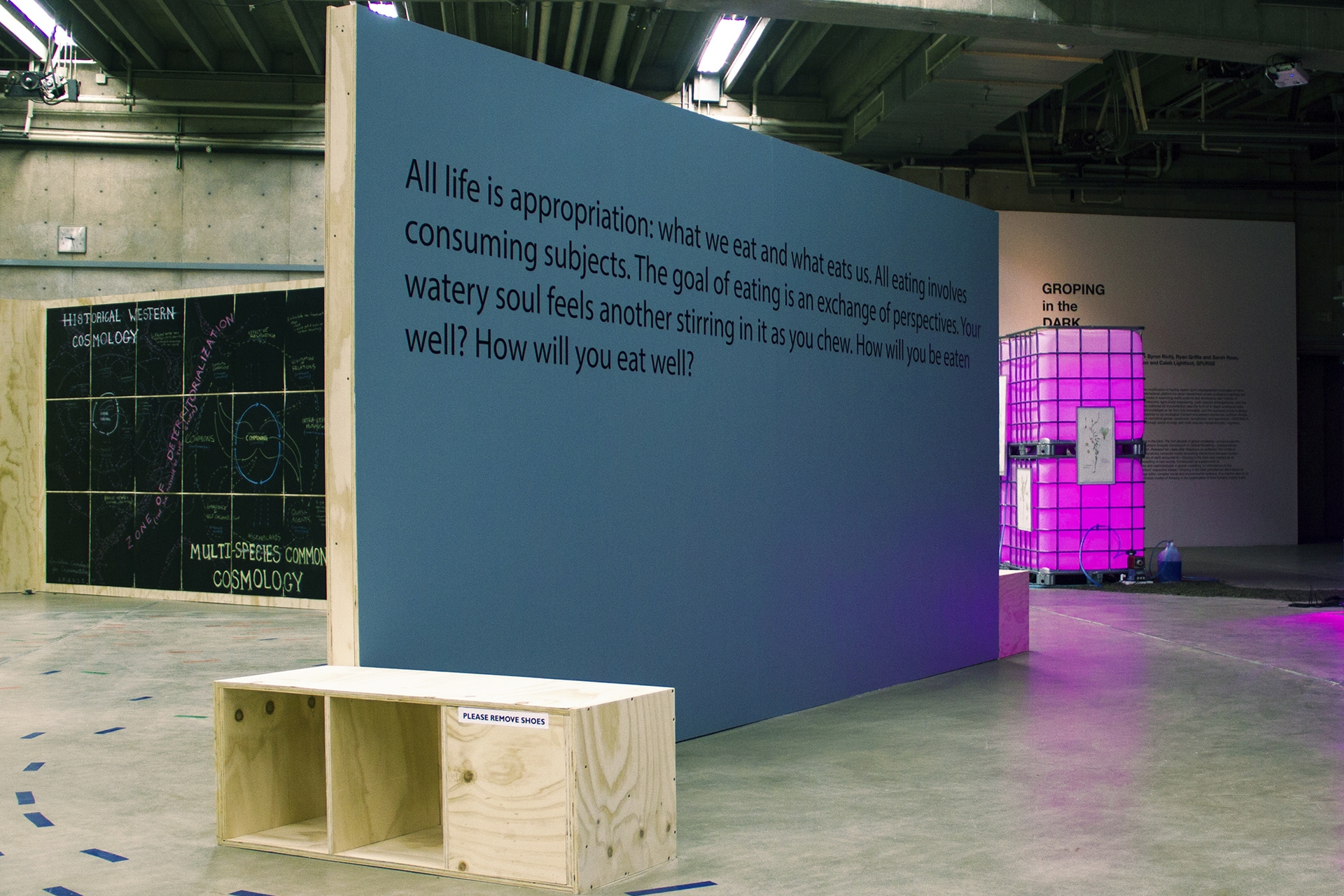
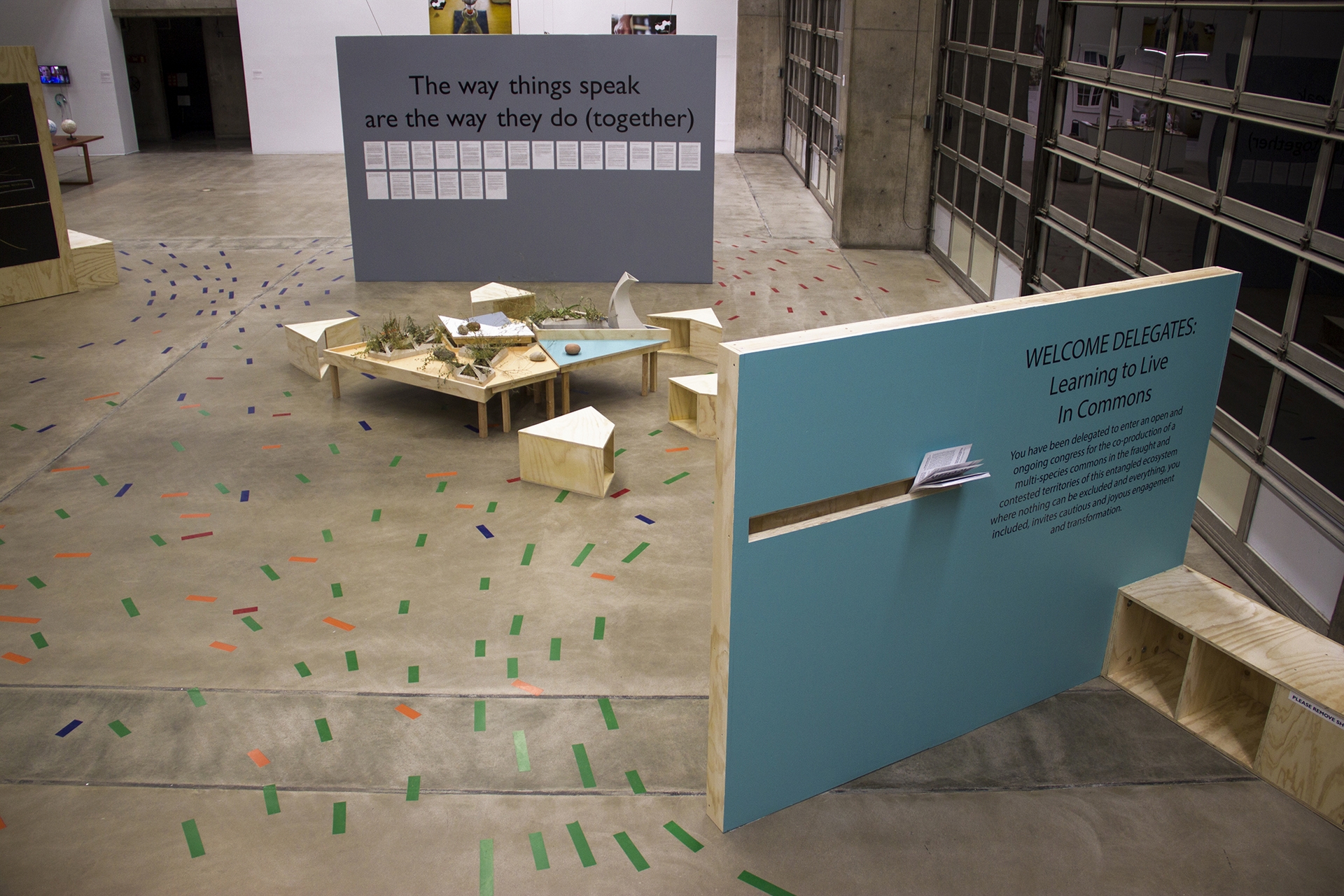
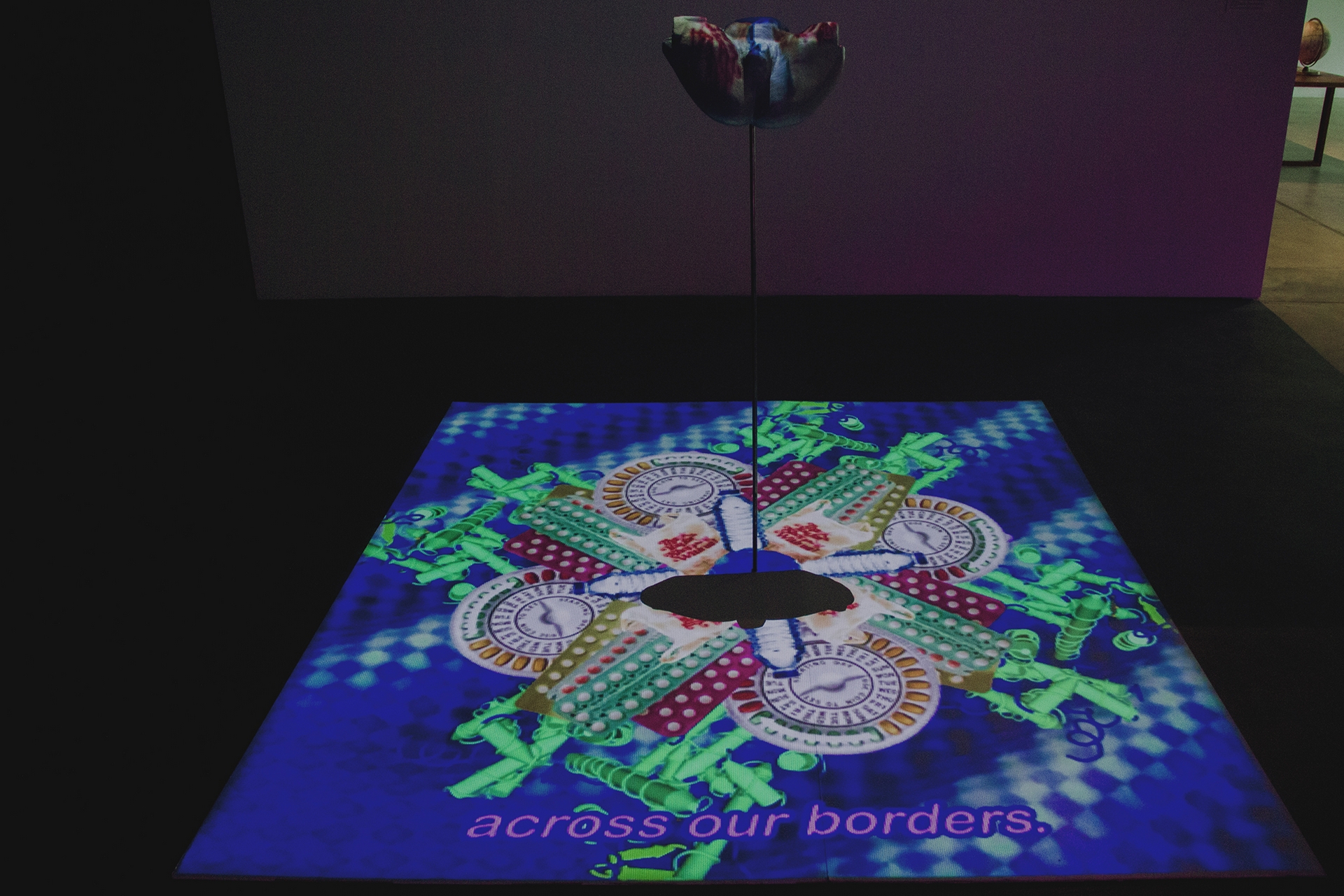
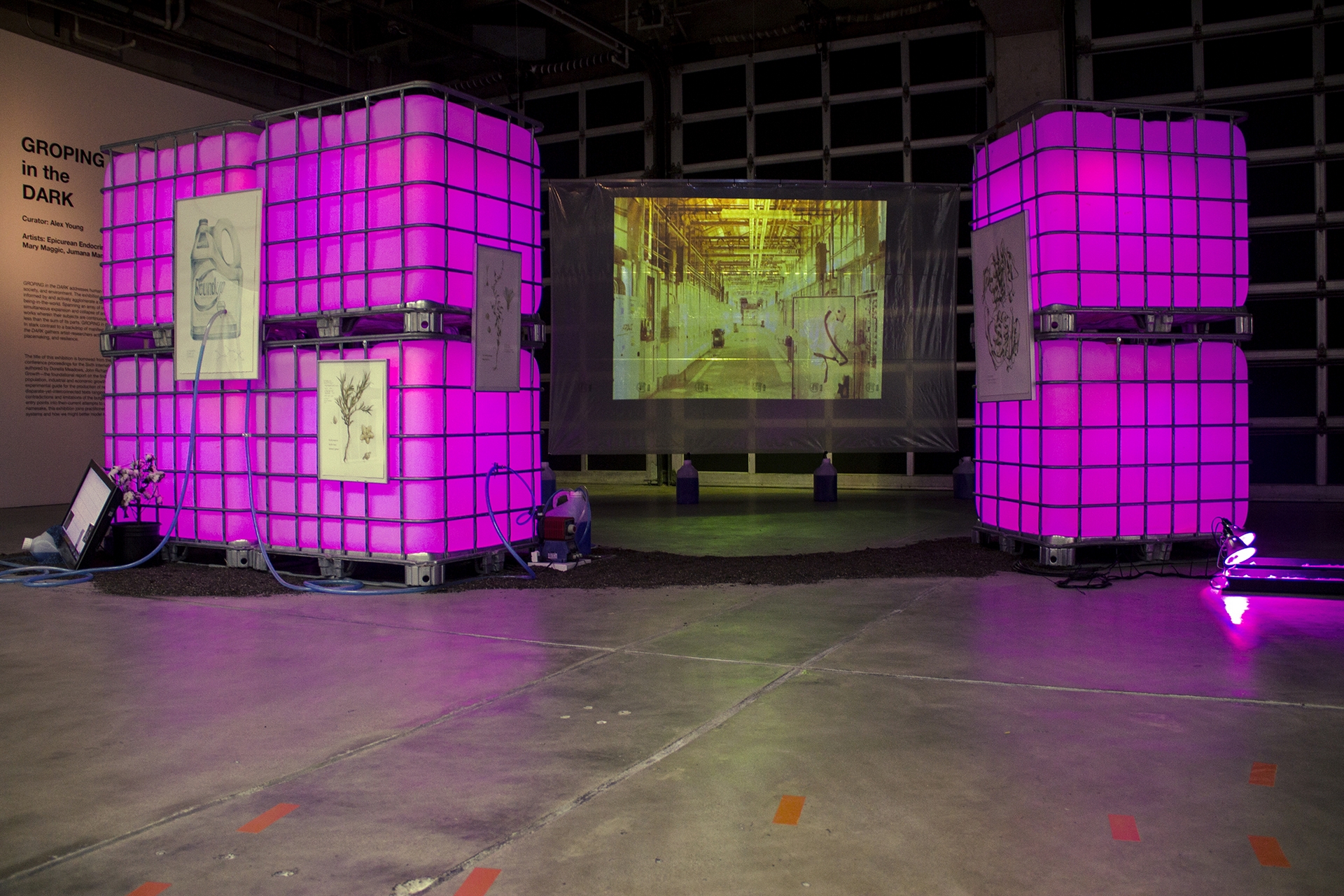
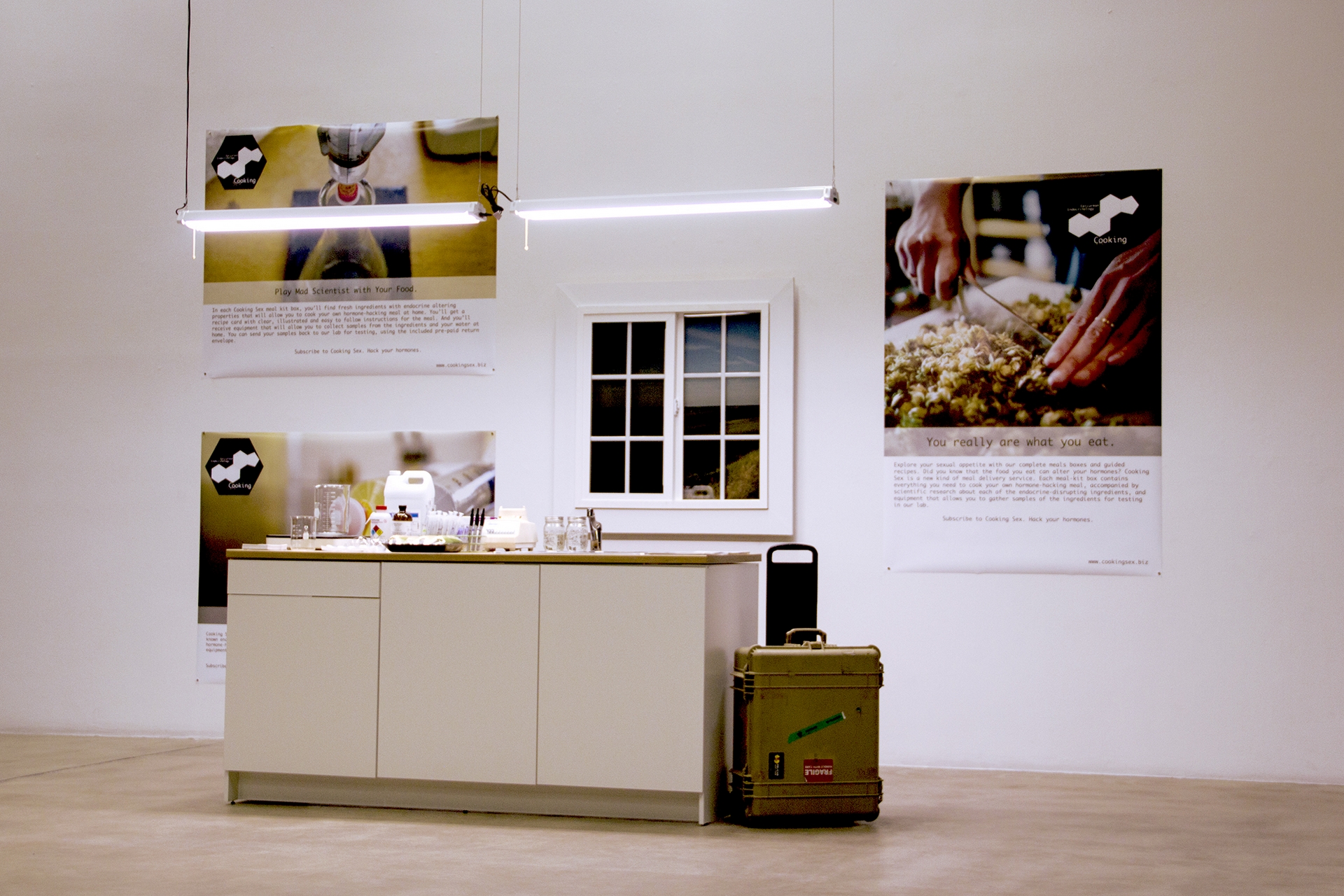
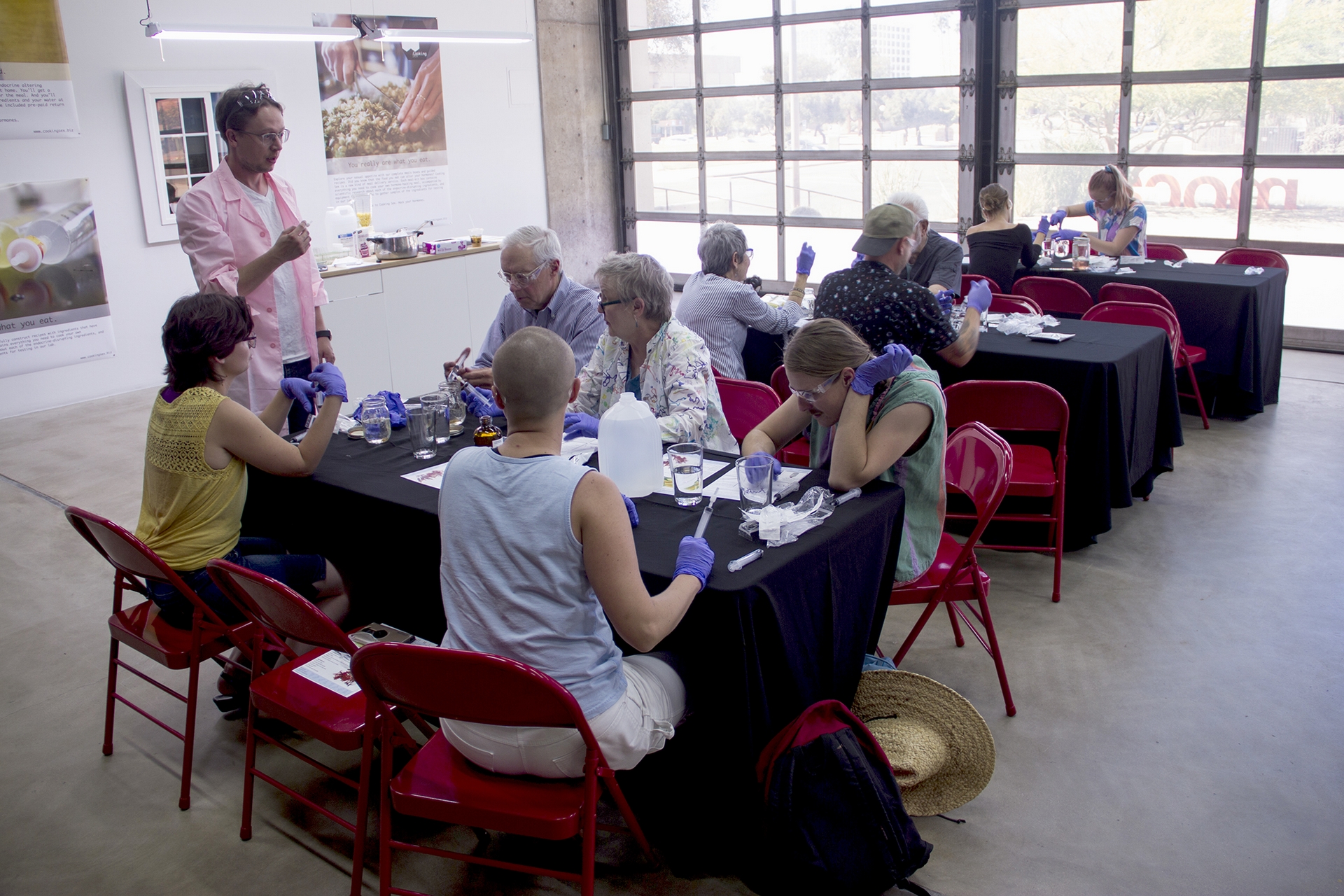
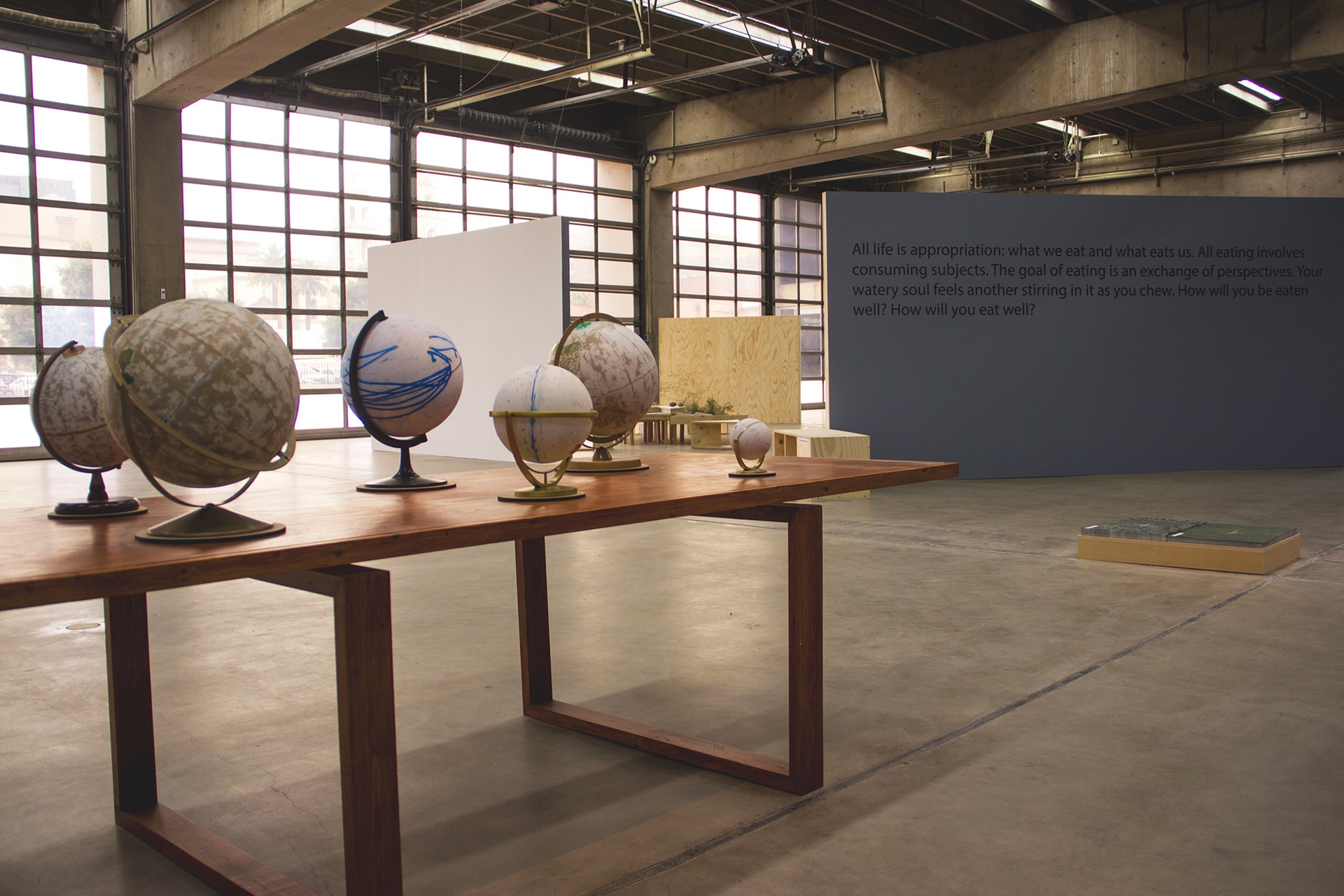
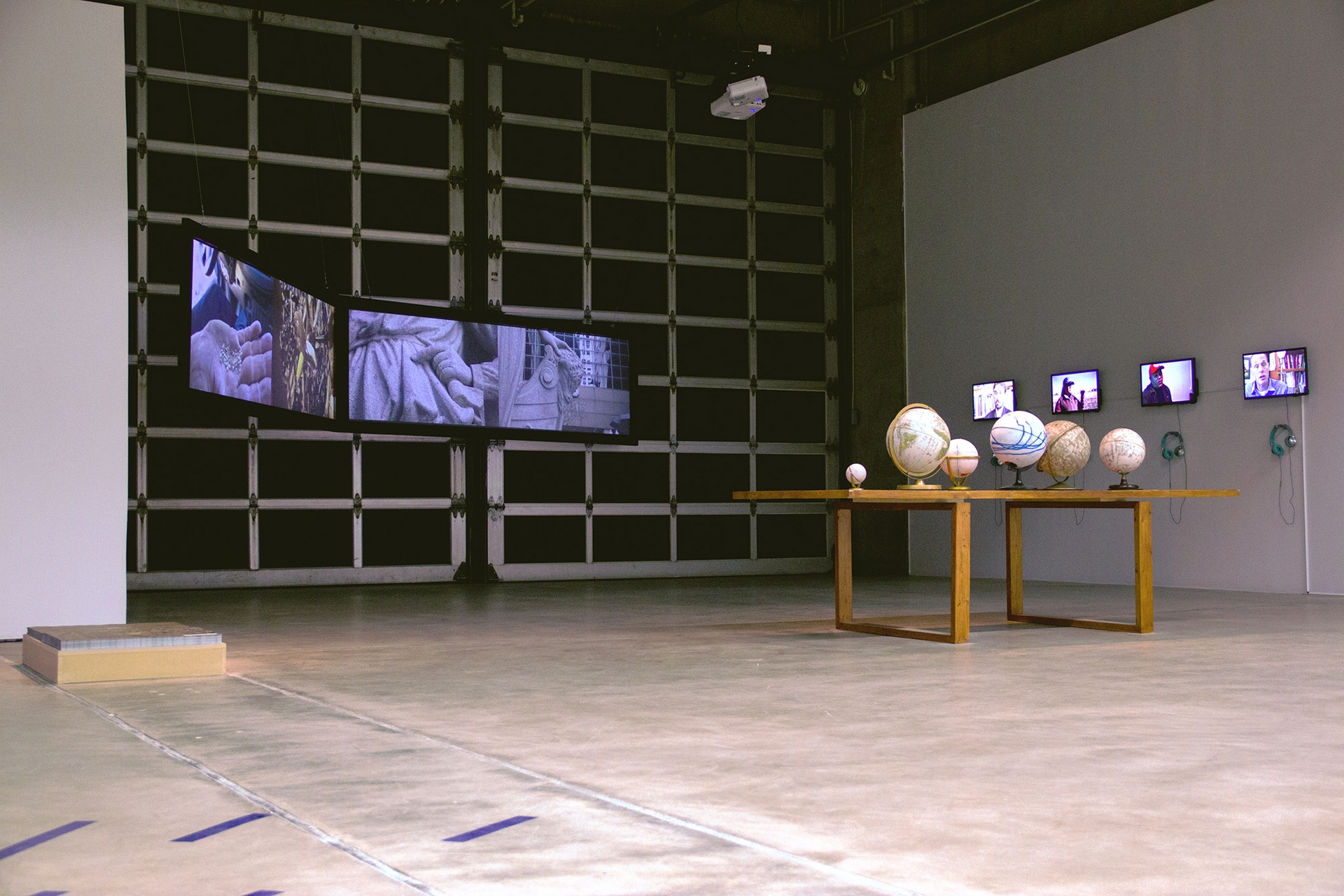
Jumana Manna - Wild Relatives (film still), 2018
GROPING in the DARK
curated by Alex Young
MOCA Tucson, Tucson, AZ
april 27, 2019 – september 27, 2019
GROPING in the DARK addresses human land use and the effects of the modification of Earthly matter upon interdependent ecologies of mind, society, and environment. The exhibition serves as an experimental presentational platform for artist-researchers whose ecological practices are informed by and actively agglomerate a diverse array of disciplines and media in examining world systems and developing new models of being-in-the-world. Spanning an array of inquiries into planetary scaled networks, agricultural engineering, multi-species entanglements, and the simultaneous expansion and collapse of anthropogenic space, the works collected for this exhibition take the form of in-depth ecological open works wherein their subjects are continuously observed, reexamined, acknowledged as far from fully knowable, and the assumed whole is always less than the sum of its parts. GROPING in the DARK is presented in response to our ecological moment and present reactionary political climate. In stark contrast to a backdrop of manifest anti-egalitarianism, hetero/cis-normative gender constructs, xenophobia, and speciesism, GROPING in the DARK gathers artist-researchers actively exploring plausible worlds through social ecology and multi-species intersectionality, migration, placemaking, and resilience.
The title of this exhibition is borrowed from the 1982 publication Groping in the Dark: The first decade of global modelling—produced as the conference proceedings for the Sixth International Institute of Applied Systems Analysis Symposium on Global Modelling—collaboratively authored by Donella Meadows, John Richardson, and Gerhart Bruckmann. Released ten years after Meadows co-authored The Limits to Growth—the foundational report on the findings of the World3 systems dynamics computer model simulating interactions between human population, industrial and economic growth, food resources, and the limits of earth ecosystems—GROPING in the DARK was created as an experimental guide for the production of new world models and the modelling of new worlds. Constructed as a patchwork of disparate-yet-interconnected texts ranging from reports on major works and methodologies in global modelling, to ruminations on the contradictions and limitations of the burgeoning field, to a list of the editors’ respective biases—Groping in the Dark provided an abundance of entry points into then-current attempts to understand and create change within complex social and environmental systems. In a manner akin to its namesake, this exhibition joins practitioners and projects that employ diverse modes of thinking in the examination of how humans modify Earth systems and how we might better model new worlds.
Artists
Epicurean Endocrinology (Liz Flyntz & Byron Rich), Ryan Griffis & Sarah Ross, Mary Maggic (with Tamara Pertamina & Char Stiles), Jumana Manna, J. Eric Simpson & Caleb Lightfoot, and SPURSE
Top to bottom, left to right:
1-2. SPURSE, WELCOME DELEGATES: Learning to Live In Commons, 2019
3. Installation view: (L) J Eric Simpson and Caleb Lightfoot, (R) SPURSE
4. Installation view: (L) Epicurean Endocrinology, (R) SPURSE
5 Installation view: (L) SPURSE, (R) J Eric Simpson and Caleb Lightfoot
6. SPURSE, WELCOME DELEGATES: Learning to Live In Commons, 2019
7. Mary Maggic (with Tamara Pertamina & Char Stiles), GENITAL( * )PANIC, 2018-19
8. J Eric Simpson & Caleb Lightfoot, Terroir (formally Lubbock City Eternal), 2017-19
9. Epicurean Endocrinology, Cooking Sex, 2018
10. Epicurean Endocrinology, Down Home Molecular Gastronomy workshop, 2019
11. Installation view: (L) Ryan Griffis & Sarah Ross, (R) SPURSE
12. Ryan Griffis & Sarah Ross, A Great Green Desert, 2017
works in exhibition:
Epicurean Endocrinology (Liz Flyntz & Byron Rich) - Cooking Sex, 2018
Ryan Griffis & Sarah Ross - A Great Green Desert, 2017
Mary Maggic (with genital collaborator Tamara Pertamina & technical collaborator Char Stiles) - GENITAL( * )PANIC, 2018-19
Jumana Manna - Wild Relatives, 2018
J Eric Simpson & Caleb Lightfoot - Terroir (formally Lubbock City Eternal), 2017-19
SPURSE - WELCOME DELEGATES: Learning to Live In Commons, 2019
programming:
Epicurean Endocrinology - Down Home Molecular Gastronomy
Down Home Molecular Gastronomy lead participants through the process of producing hormone hacking foods, starting with a workshop using citizen science to detect and extract hormone-mimicking compounds (endocrine disruptors), followed by a hands-on molecular gastronomy cooking class using the foods and water tested.
Jumana Manna - Wild Relatives
Deep in the earth beneath Arctic permafrost, seeds from all over the world are stored in the Svalbard Global Seed Vault to provide a backup should disaster strike. Wild Relatives starts from an event that has sparked media interest worldwide: in 2012 an international agricultural research center was forced to relocate from Aleppo to Lebanon due to the Syrian Revolution turned war, and began a laborious process of planting their seed collection from the Svalbard back-ups. Following the path of this transaction of seeds between the Arctic and Lebanon, a series of encounters unfold a matrix of human and non-human lives between these two distant spots of the earth. It captures the articulation between this large-scale international initiative and its local implementation in the Bekaa Valley of Lebanon, carried out primarily by young migrant women. The meditative pace patiently teases out tensions between state and individual, industrial and organic approaches to seed saving, climate change and biodiversity, witnessed through the journey of these seeds.–
SPURSE - Eating and Being Eaten
What does it mean to talk to rocks or furniture? What does it mean to model the human on plants? Join SPURSE for a series of exercises and conversations over a very light meal on living well after Nature in the age of the Anthropocene. A series of exercises and conversation with SPURSE about how to imagine and live in a world without Nature or Culture.